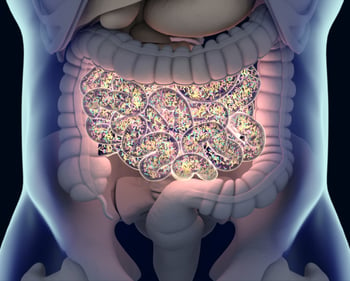
In an 1817 study on Parkinson’s disease (PD), James Parkinson noted that many of the patients with PD had gastrointestinal issues, and that up to 80% of these patients suffered from constipation. Even 200 years ago, we knew about the gut-brain connection. Currently, the literature demonstrates that the microbiome does, in fact, affect the function and health of the brain; the development of the brain, the activity of circuits in the brain, and certain behaviors. The research has mainly focused on identifying specific molecules made by gut bacteria, and how they mediate the gut-brain connection.
In a recent study, the question was posed, “Why do people with neurological conditions have GI issues?” Because the microbiomes are different between a PD patient and a healthy patient, they transplanted the microbiota from the human PD patients into germ-free mice. The mice, as you might expect, developed severe PD symptoms, confirming their theory that the microbiome was contributing to the symptoms.
In addition, the researchers identified the genes that are responsible for inducing PD symptoms, and recognized that these genes dictate microbial pathways. Their first clinical trial will begin at the end of the year, employing “a gut selective molecule that targets a microbial pathway, which is completely inert to the mammalian system, in about 100 PD patients.”
Whether or not the microbiome is responsible for inducing PD is “complete speculation,” as stated by the author of the study. However, they think that it is certainly possible. He also noted that decoding the microbiome will be a “blueprint that will uncover the microbiome as an avenue to understand health and disease and leverage it to people.” In other words, the microbiome will continually be assessed to help demystify its influence on neurological diseases such as PD.


